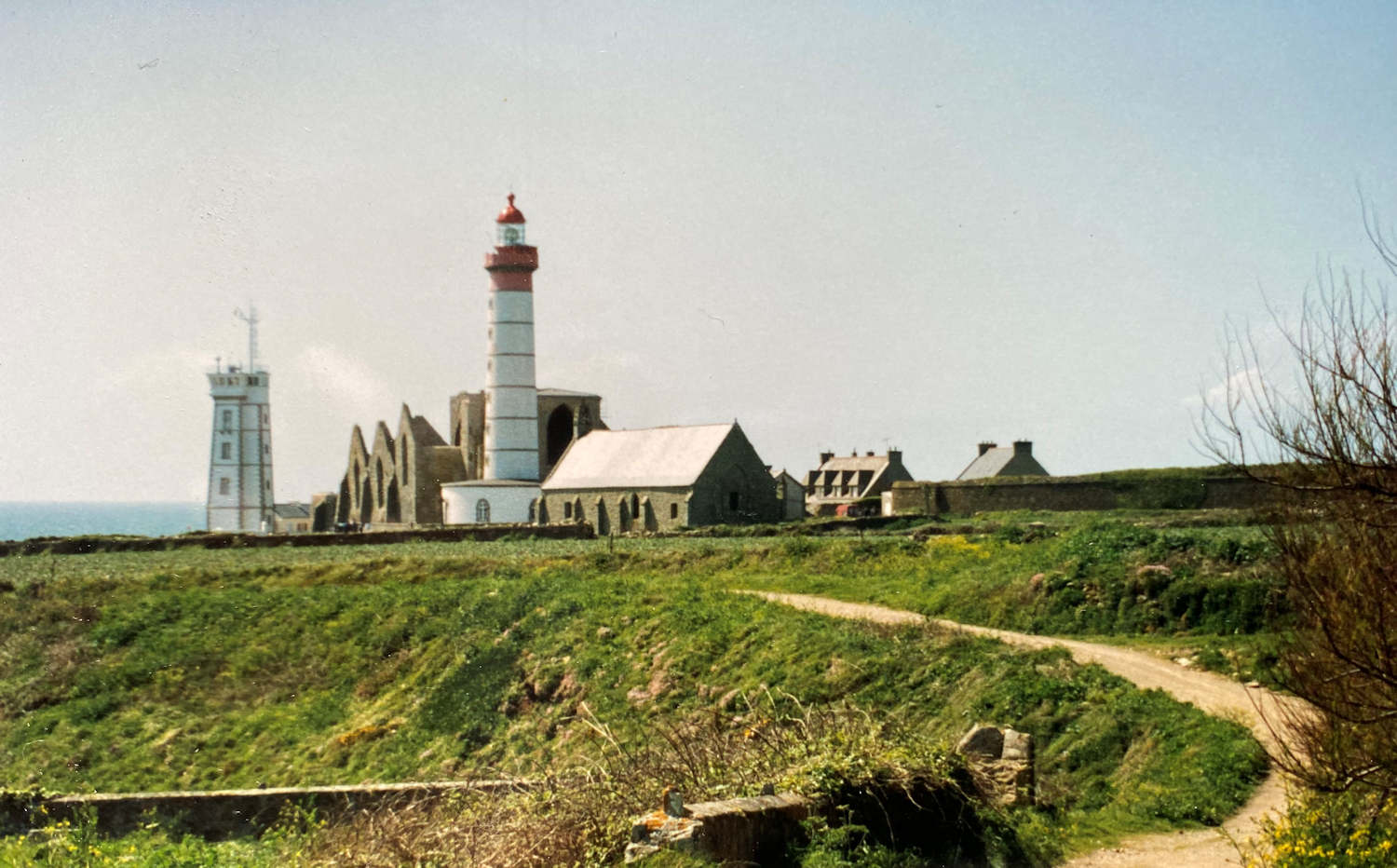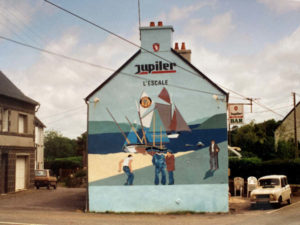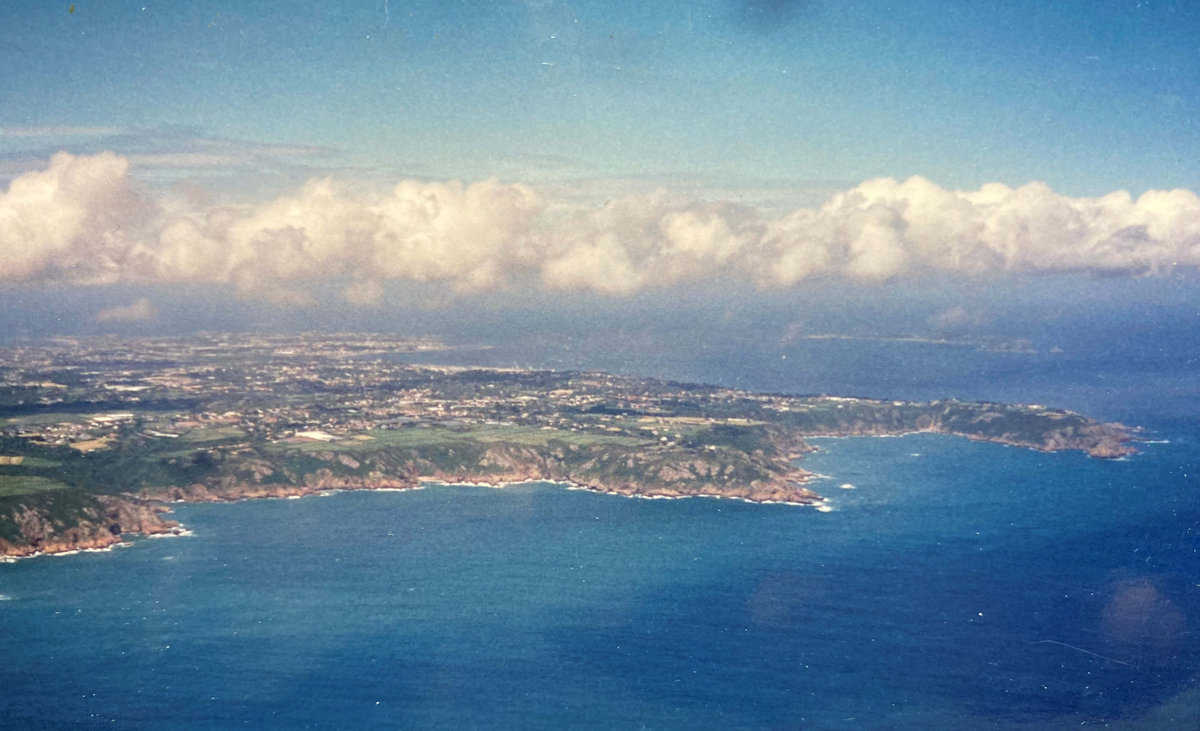
In the early 1990s, I lived in a cavernous stone manor in the village of Logonna-Daoulas in Brittany, just across from the tiny but popular pub and across the parking lot from the less popular church. Each morning I drove into the city of Brest to teach at an English immersion school. Even the Brestois called Brest an “ugly” city, demolished in WWII and then rebuilt quickly, sitting like a blemish on the nose of France that juts into the Atlantic. But the Breton countryside outside the city is a lovely drive through undulating gray-green fields steeped in mist and rain. Potato fields. Miles and miles and miles of them.
A food lover, I worked my way through the Breton catalog of culinary wonders during my first few months in Brittany. I ate delicately spun buckwheat crepe-like galettes, my favorite filled with a perfect balance of musky smoky sausage and briny seaweed. I feasted on piles of mussels coaxed to open their shells in a savory brew of mellowed alliums, wine and then the sea broth given up by the crustacean, a baguette there to soak up every single drop of buttery, tangy broth. At my friend’s cottage by the roaring gray ocean, I slathered slices of dark buckwheat bread with the famous brilliant-yellow Breton butter salted by the sea and ate it alongside razor clams we had just dug up from the sandy beach. And my cheeks got round with weekend brunches ending in flaky, caramelly kouign amann pastry.

Those first few months I don’t know if I ate even one potato. “Earth apple” in French and Breton: pomme de terre, aval-douar. I wondered where the produce from all the fields of green went if not to the Breton table. In fact, my introduction to those potatoes – Amandine, Charlotte, Marianna, to name just a very few – began not à table but on the streets of Brest. Literally on the streets.
I was on my way home from school one evening, later than most commuters. It was a typical drizzly gray spring but the eerie silence was more like a city after a winter storm. Farmers protesting low prices had dumped tractor loads of potatoes at major intersections. The piles were now a whispering soft mush like when you add too much milk to the spuds.
Cars quietly shushed through the slush or got stuck, like me, in a foot of puree. A tall lusty gendarme, in the normally menacing all-black uniform, directed traffic with the glee of a child on the first real snow day in December. He lifted up my car’s back right rear where the tire was spinning in the muck with a hearty, “Hop là!” The thrust sent a spray of potato up the front of his jacket and his feet slid out from under him on the slippery sliding mess. He fell flat on his derriere, laughing up at the sky; I half expected him to make a snow angel in his delight. “Oh, la, la, quel bordel!” he laughed.

My introduction to the importance of potatoes to Breton chefs happened at a small café on a blustery winter day, the wind roaring in off the Atlantic. The waitress standing at my table, a round older woman with remarkable posture, tapped a pad with her pencil. Her apron was pristine, white and pressed, a towel tucked on the side to give a table a quick swipe. She was all business and waiting for my order. The special of the day? Lapin chasseur – rabbit, hunter-style. With potatoes.
It sounded lovely. But in my bright-eyed and bushy-tailed naïve American way, I asked in my clumsy French, “What is there as vegetables?”
The waitress, a bit like my stern second-grade teacher, Mrs. Bodfish, who said a lot with a little, stared silently. She must have realized Americans can be dense. “Potatoes,” she repeated.
Not to be deterred I went on, “Well, in my country, potatoes are not truly considered as a vegetable.”
She continued to stare. I matched her ability to be frugal with her words, with my ability to go the extra mile. “It’s like the rice or the pasta? How do you say, a ‘starch’?”
Nothing. Surrendering, I ordered the lapin that the hunter had slaved over with the potato vegetables. The rabbit was tender and fell away from the bone with a simple touch of a single fork tine. Mushrooms melted away on my tongue in a caramelly brown sauce and a medley of herbs teased my palate. And with each bite? A bit of potato to perfectly bind and carry the woodsy meat, mushroom and sauce without disturbing the delicacy of the flavors.
The waitress came by and asked brusquely how everything was. “Très, très bon – délicieux.” She gave a short and sure “of course” nod and went back to the other customers. My stomach gloriously warm and full, the bill paid, I was calling my farewell when the waitress remembered something and gestured for me to wait.
She called to the chef in the kitchen. He appeared at the window where orders were placed – tall and thin, eyes quick and gray-blue like the Breton sea, cheeks red and glossy with the heat of the kitchen. She presented me ceremoniously with a dramatic sweep of her arm. “This,” she emphasized, “is the woman who said potatoes are not a vegetable.”
He looked me over from head to toe and back again. He enunciated. “C’est le légume de baaaaase, madame,” which translates to “Lady, it is the foundation on which all other vegetables rest, on which all food rests, in fact.”
There it was. The reason for the glorious green and rolling fields laying down a carpet from the city to the sea as I passed on the drive to work each day. And from that moment on, I began to see them everywhere. Humble, unassuming potatoes – the necessary support to the dishes that stole the culinary thunder but were not complete without them.
There was Kig ha farz – buckwheat flour dumplings cooked in a linen sleeve alongside boiled meats and vegetables – with potato cooked in the salty, savory broth. Not a restaurant dish but a simple stick-to-your-ribs meal meant to gather family around the table after Sunday mass. Poulet à la Bretonne, simmered on the stove in a Breton cider as fine as any dry white wine, only became a full dinner when served with golden roasted potatoes. Historically, the fisherman of Brittany took potatoes with them for long days out on the water and would add a medley of fish from their catch with a bit of water and sea brine to make the working man’s cotriade, a nourishing soup at sea. And every Breton village had its own recipe for the fisherman’s soup perfectly suited to the many many rainy, windy days of Bretagne.
In 2023, I will be heading back to revisit the land of pommes de terre. I know I can expect some rain, I can expect drives through lovely countryside, and I can expect some incredible meals with the essential foundation of potatoes.
© 2022, Francesca Cannan, for first publication on France Revisited.


Such an excellent story, both educational and interesting. Merci, Francesca!
Not happy you call Brest ugly I love that place that I called home for 8 years I lived in Hopital Camfrout and travelled to Brest daily for work the only city I have ever felt safe in .